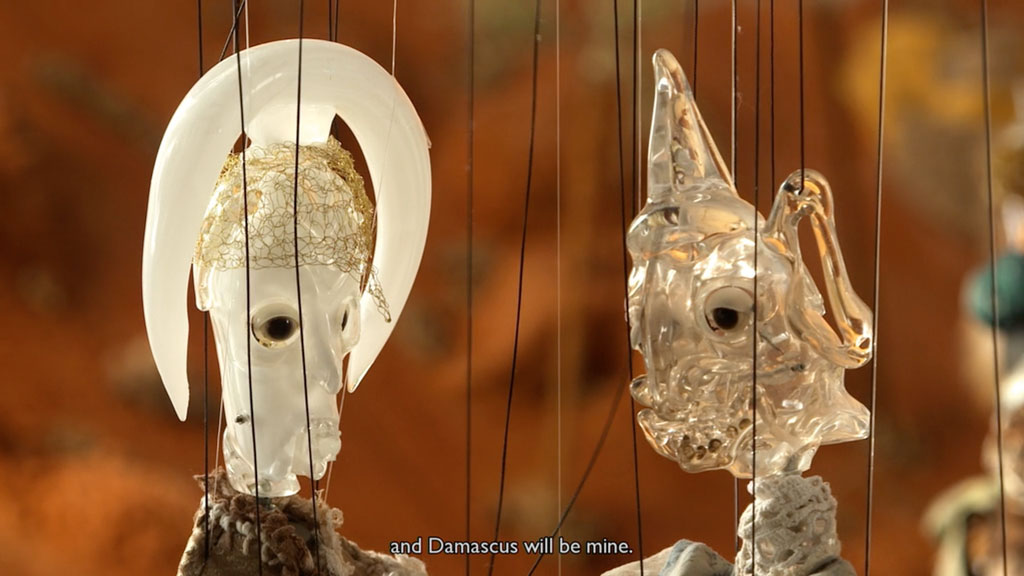Shawky, Wael
Cabaret Crusades: The Secrets of Karbala, 2015
Ein-Kanal-HD-Video, Farbe, 5.1 Dolby Surround Sound-System, Edition 2/7, 2 AP (Arabisch mit englischen Untertiteln)
120 Minuten
Erworben 2016 von der Stiftung Junge Kunst e.V.

Die Wechselwirkungen zwischen Religion und Politik sowie die gesellschaftliche Rezeption von Ereignissen sind Themen, die der ägyptische Künstler Wael Shawky in seinen Video- und Installationsarbeiten untersucht. Zwischen 2010 und 2014 widmete er die drei Filme der Cabaret Crusades (The Horror Show File; The Path to Cairo; The Secrets of Karbala) der Geschichte der Kreuzzüge, einem Thema, das durch die fortbestehenden Konflikte und Kriege um die Stadt Jerusalem auch heute noch, über 1000 Jahre später, höchst aktuell ist. Ausgehend von der Schlacht von Karbala (680 n. Chr.) erzählt Shawky aus arabischer Sicht: Aus dieser anderen Perspektive wird die im Westen vertraute Geschichte von der „Befreiung“ Jerusalems zu einer Chronik von Massenmord, Plünderung und Machtstreben. An Schnüren geführte Marionetten aus Glas agieren buchstäblich wie ferngesteuert und verkörpern gewissermaßen Fragen nach der Möglichkeit politischen Handelns, nach Macht und Manipulation. Die Stiftung Junge Kunst hat die Dreharbeiten in K20 finanziell unterstützt und dafür eine Edition des Films erhalten.
